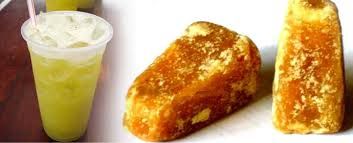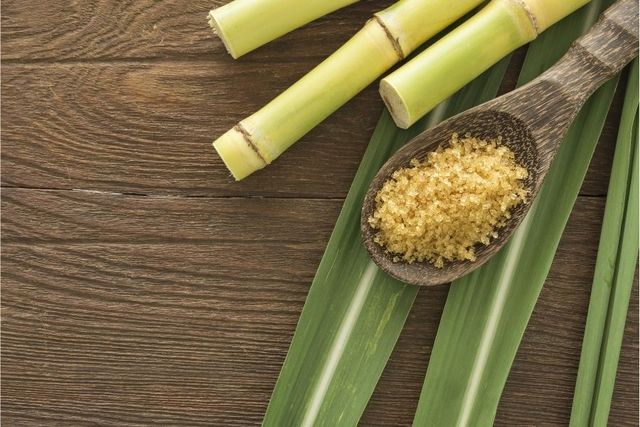Sugarcane Product and Its Place in the Global Renewable Energy Movement
Sugarcane Product and Its Place in the Global Renewable Energy Movement
Blog Article
Lasting Sugarcane Products: From Sweeteners to Eco-Friendly Product
The potential of sustainable sugarcane items expands past typical sugar to encompass a range of environmentally friendly goods, providing an engaging case for their assimilation into modern consumer techniques. As the world grapples with pressing ecological issues, sugarcane arises as a versatile source capable of addressing both nutritional demands and sustainability objectives.
Overview of Sugarcane Sustainability
As the need for eco-friendly products expands, comprehending sugarcane sustainability becomes increasingly crucial. Sugarcane, a functional plant, is cultivated mostly in tropical and subtropical regions, and its sustainability is critical for both ecological wellness and economic practicality. Sustainable sugarcane farming techniques concentrate on lessening eco-friendly impact while optimizing efficiency and profitability.
Key aspects of sugarcane sustainability include effective land use, decreased chemical input, and boosted water management. Practices such as crop rotation, incorporated pest administration, and natural fertilizing add to dirt health and biodiversity. Furthermore, innovative innovations, such as precision farming, aid maximize source usage and decrease waste.
In addition, sugarcane is a renewable energy, with byproducts that can be utilized in numerous markets, from biofuels to naturally degradable plastics, consequently decreasing dependence on fossil fuels and decreasing carbon footprints. Certifications like the Bonsucro conventional encourage sustainable techniques throughout the supply chain, promoting openness and liability.

Sugarcane-Based Sweeteners
Utilizing sugarcane as a key resource, sugarcane-based sugar have gained importance as natural choices to polished sugars and sweetening agents (sugarcane product). These sweeteners, obtained from the removal and handling of sugarcane juice, offer a series of products that satisfy diverse customer choices, including natural and minimally refined alternatives
Amongst one of the most notable sugarcane-based sweeteners are raw cane sugar, panela, and molasses. Raw cane sugar preserves more of the natural flavors and nutrients found in sugarcane, making it a popular option for health-conscious customers. Panela, a standard Latin American sweetener, is produced by evaporating sugarcane juice, protecting its all-natural minerals and vitamins. Molasses, a by-product of sugar extraction, is rich in anti-oxidants and necessary nutrients, offering as a nourishing sweetening agent in different cooking applications.
The expanding demand for sugarcane-based sugar is driven by raising understanding of health and wellness and sustainability concerns connected with standard sugar. By choosing sugarcane-derived products, consumers not just support lasting agricultural practices however additionally add to a much healthier lifestyle, straightening their nutritional options with their ecological values.
Eco-friendly Packaging Solutions
Becoming a practical option to traditional plastics, biodegradable packaging services stemmed from sugarcane are changing the packaging industry. These ingenious products supply an eco-friendly option that attends to the expanding concerns over plastic contamination. Making use of the natural sugars found in sugarcane, makers are developing different forms of biodegradable packaging, including movies, containers, and wraps that decay extra rapidly than typical plastics.
The primary benefits of sugarcane-based product packaging hinge on its renewable sourcing and its capacity to break down into non-toxic by-products. Unlike fossil fuel-derived plastics, which can linger in the atmosphere for centuries, sugarcane product packaging usually decomposes within a few months under proper conditions. This decrease in waste not only reduces landfill overflow but also reduces the carbon footprint related to product packaging materials.
Furthermore, sugarcane-derived packaging maintains durable efficiency attributes, providing similar resilience and performance to standard alternatives. As consumers and organizations progressively focus on sustainability, the fostering of biodegradable product packaging solutions stands for a significant step in the direction of a circular economy, where products are reused and regrowed instead of discarded. This shift not only improves brand photo but also adds to a more sustainable future for the world.
Eco-Friendly Textiles and Fabrics
Eco-friendly fabrics and fabrics are acquiring grip in the style and home products sectors as customers significantly require lasting alternatives to standard products. Among the notable options are fabrics originated from sugarcane, which supply an ecologically liable choice to artificial fibers. These textiles are generated check my blog with a process that utilizes the renewable resources discovered in sugarcane, dramatically minimizing reliance on petroleum-based materials.

As the market for sustainable textiles expands, customers can look ahead to innovative styles that incorporate style with eco-friendly duty. Ultimately, environmentally friendly fabrics and fabrics stand for a substantial action towards decreasing the fashion sector's ecological impact while catering to the growing need for responsible consumer additional resources selections.
Innovations in Lasting Farming
Changing agricultural methods, developments in sustainable farming are changing the means plants are grown and handled. These improvements concentrate on lessening ecological influence while taking full advantage of performance and productivity.

Additionally, agroecology, which incorporates eco-friendly concepts into farming, advertises biodiversity and dirt health. Practices such as plant rotation, cover chopping, and intercropping foster durable ecological communities that can endure pests and climate variations - sugarcane product. In addition, making use of organic fertilizers and biopesticides contributes to much healthier dirts and ecological communities

With each other, these innovations are not only reshaping the agricultural landscape however likewise adding to an extra lasting future for sugarcane and other plants, lining up farming practices with ecological stewardship.
Conclusion
Sustainable sugarcane products represent a considerable development in environmentally friendly alternatives, extending from all-natural sweeteners to eco-friendly items. As customer preferences progressively lean in the direction of lasting choices, the flexibility of sugarcane as a sustainable source comes to be increasingly appropriate.
The potential of lasting sugarcane products expands beyond traditional sweeteners to incorporate a variety of green products, presenting a compelling case for their integration right into modern customer practices. Sustainable sugarcane farming techniques focus on lessening pop over to this site ecological impact while taking full advantage of efficiency and productivity.
Lasting sugarcane items represent a significant innovation in eco-friendly alternatives, spanning from natural sweeteners to naturally degradable goods. The farming of sugarcane through lasting practices not only improves environmental health yet additionally contributes to financial feasibility. As customer choices progressively lean in the direction of sustainable alternatives, the adaptability of sugarcane as a sustainable resource ends up being significantly relevant.
Report this page